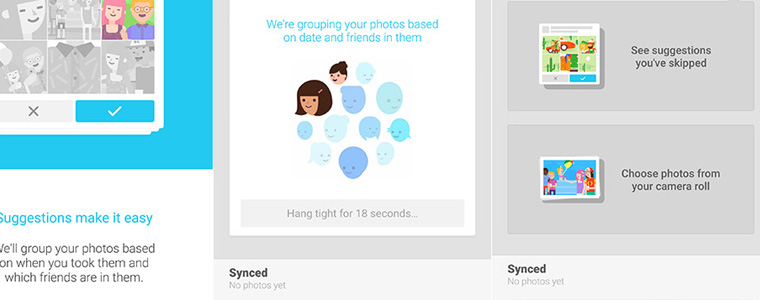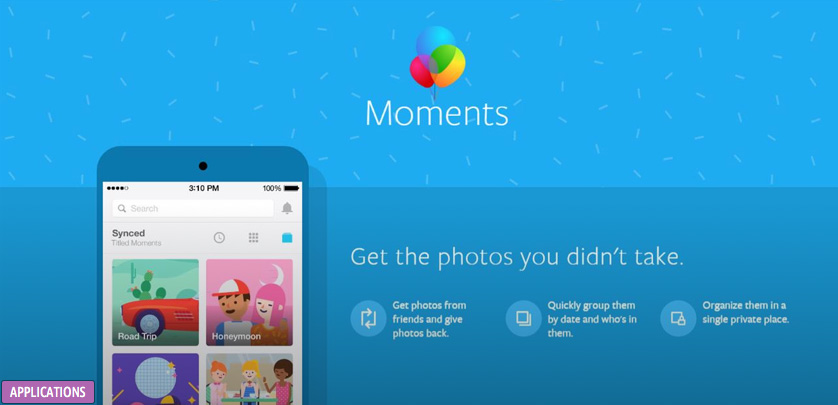
Launched with great pomp and ceremony in the United States of America, Facebook’s Moments application enables you to share group photos using their facial recognition technology. It is currently not allowed in Europe.
This function is essential to the Moments application, since the goal is to effectively recognise each person present in photos.
Regulators are requiring that Facebook set up a feature where this device is authorised manually, for those who wish to use it. In 2012 Facebook were obligated to remove this function from their platform.
The Moments application enables you to share group photos, while at the same time, recognising the face of each person in the photo
With the Moments application, Facebook’s facial recognition algorithm will identify the people present in the photos and, should they have a Facebook account, these people will receive photos through the social network.
“Get the photos you didn’t take”, is Moment’s slogan
The European Commission immediately expressed concern regarding unauthorised automatic facial recognition of photographed faces and requested that Facebook make compulsory, approval from users who are present in the photos.
The authorisation device requested by European regulators does not yet exist and the social network has no plans so far to add it to their application.
“We were told that we had to plan for a system which would confirm the user’s agreement? This is not currently the case, so the application will not be available until this is in place “declared Richard Allan, Facebook’s Vice president in charge of European policy.
For the American group, these European laws are a true hindrance to their cutting edge technologies and their commercial development towards European consumers. A few weeks ago, it was revealed that the NCIT (National commission for information technology and civil liberties) (the equivalent to the ICO) was planning to prosecute the American giant with regards to its non-compliance with the current law on the protection of the private life of its users.


